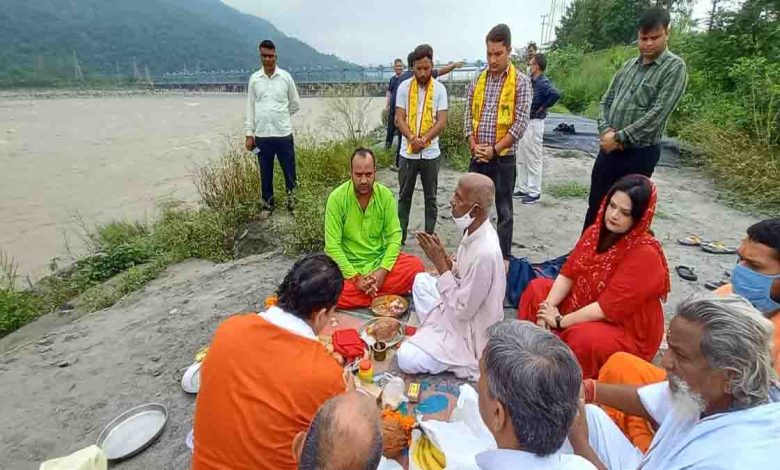Govindacharya begins Yamuna study Yatra

Sunday, 29 August 2021 | PNS | New Tehri
Interactions on nature-centre development along Yamuna to be held with people
Black carbon from European nations is reaching the Himalayas and the accumulation of this carbon in the Himalayas has increased the risk of glaciers melting. Stressing on the need for nature-centric development instead of human-centric development former ideologue of the RSS, KN Govindacharya formally began his Yamuna study Yatra amidst Vedic chants from Vikasnagar area on Saturday.
Govindacharya said that the health of Himalayan glaciers is deteriorating due to carbon absorption which has increased the risk of a breach in the glaciers. He further said that icebergs in Antarctica are breaking down faster and flowing away in the sea. The repercussions of such developments will threaten the lives of about five crore people residing near the coast in at least eight locations. Stressing on the importance of the link shared by water, forest, land, animals, trees and mountains, he warned that the whole humanity will have to face of consequences if this link is disturbed or damaged. It is not possible for humans to live without biodiversity, he added
Govindacharya said that till about 200 years ago, India was the richest country in the world. The economists believe that at that time a person in India had eight cattle per one person in one home. When the British left, one bovine was left for one person. Now the situation is not hidden from anyone. He said that the forest cover should be 33 per cent, which has now come down to 16 per cent. He also expressed concern at the depleting water level.
It is pertinent to mention here that earlier, this yatra was scheduled to start from Jankichatti near Yamunotri on August 28. However, due to the damage caused recently to the highway, it was decided to start it from Vikasnagar. During the Yatra, interaction will also be held with the people working on the development model that is nature-centric along the banks of the Yamuna river.






